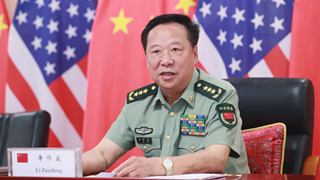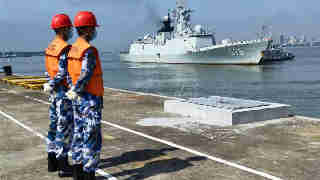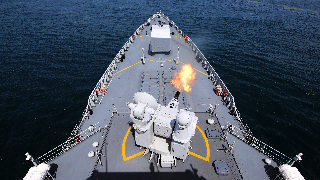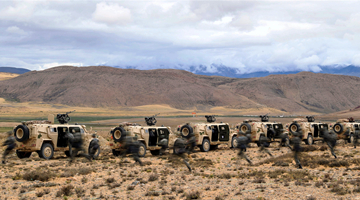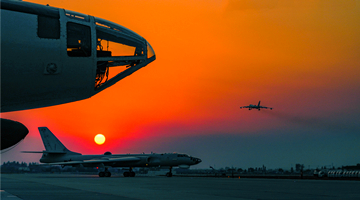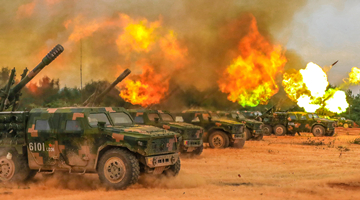By Wang Jin
US President Biden visited the Middle East from July 13 to 16, which brought him to Israel, the west bank of the Jordan River of Palestine, and Saudi Arabia. During the visit, Biden discussed with his hosts how to cope with the threats from Iran, forming a Middle Eastern air defense alliance, and other topics. This move, instead of bringing security and stability, will cause greater tension and division in the region.
What has been widely speculated is that Washington plans to build a military alliance in the Middle East since 2019. After the White House announced Biden’s upcoming visit, discussions about America forming a NATO-like alliance in the region have got increasingly heated. The US intends to achieve two goals through such an alliance.
On the one hand, it hopes to provide a security guarantee for regional allies. As the Russia-Ukraine conflict aggravated the global energy crisis, the US hopes to keep down oil prices in the international market and mitigate domestic inflation by persuading the Middle Eastern countries to increase oil production. Therefore, Washington has accelerated the negotiations with Iran on the nuclear issue and eased relations with countries like Saudi Arabia, Qatar, and UAE. It wants Iran's energy resources back into the international market but also needs to placate its Middle Eastern allies and give them a security guarantee. On the other hand, it hopes to maintain its remote control over the region. Unlike the European and Asian allies, there is never a systemic and treaty-based security cooperation mechanism to include its Middle Eastern allies. Since Biden came into power, he has been avoiding any direct engagement in conflicts in the Middle East. It is during his term that America pulled back from Afghanistan and withdrew all "combat forces" from Iraq. But it needs to keep an eye on the region and hopes to forge a new architecture, in which its Middle Eastern allies provide money and manpower and the US sells weapons and equipment. Forming a regional air defense alliance will deepen the security cooperation among America’s Middle Eastern allies, keep the US behind the scene without having to come forth to the frontline, and make the allies keep buying American arms.
However, such a kill-three-birds-with-one-stone plan is hard to come through in the near term.
Firstly, Iraq, a key building block of the so-called Middle Eastern air defense alliance, won't join it. To build such an alliance against Iran, the US needs to develop a sound intelligence network and sufficient air defense depth for interception around Saudi Arabia, UAE, and Israel, so the US decides to rope in Iraq, a neighbor of Iran. However, the Iraqi public is strongly against military cooperation with the US. Besides, considering its close relations with Iran, the Iraqi government won’t publicly approve the military cooperation with countries like Israel either. This means America’s air defense alliance in the Middle East will miss an important part.
Secondly, Israel, Saudi Arabia, and UAE don't see eye-to-eye with each other. Israel will have reservations about military cooperation because it doesn't want Saudi Arabia and UAE to have access to advanced military technologies, while those two hope Israel could make concessions on the conflict with Palestine, otherwise they cannot convince their people of supporting the military cooperation with Israel. Saudi and UAE also disagree on how to solve the war in Yemen.
Thirdly, Qatar, Kuwait, and Oman don't support the idea of a regional air defense alliance. Qatar's largest offshore oil and gas field borders Iran, so it doesn't want to irritate the neighbor and has been trying to stay neutral between Saudi and Iran. Kuwait and Oman don't want to stand against it either as they are traditionally close with Iran and have many Iranian immigrants.
(The author is an associate professor at the Institute of Middle Eastern Studies, Northwest University.)
